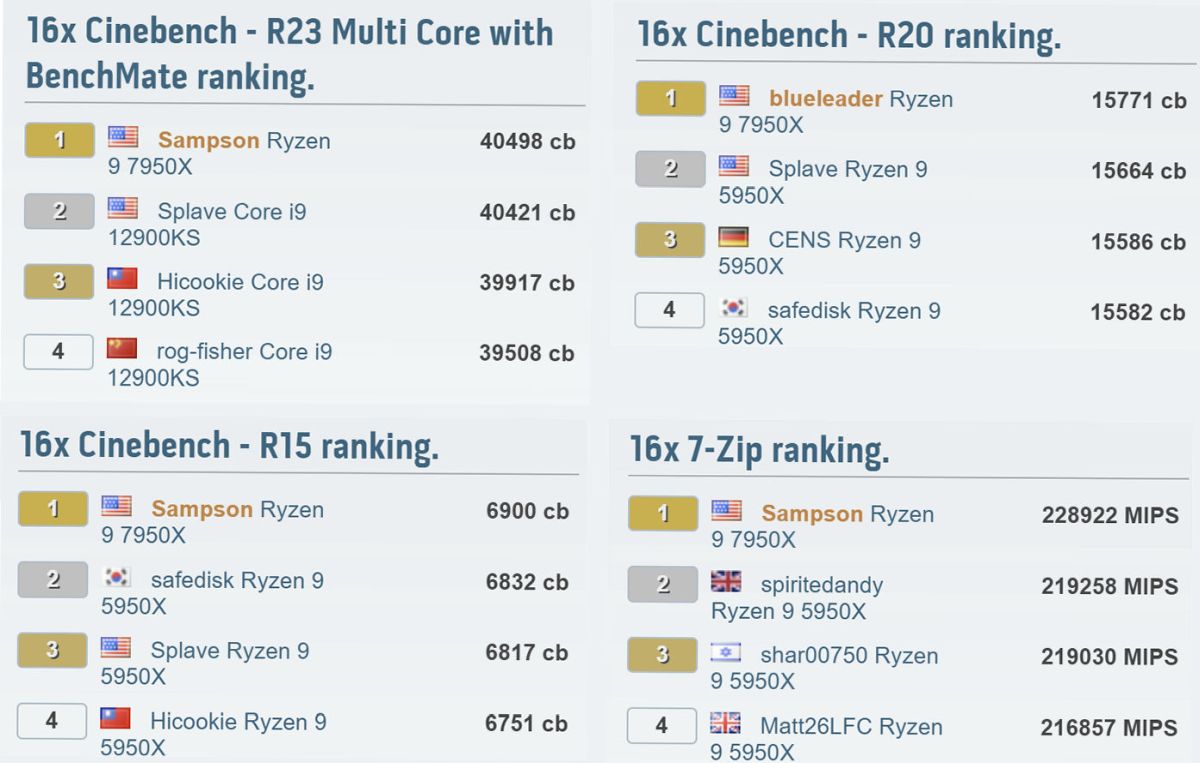The overclockers that achieved their feats were Sampson and Blueleader, both of whom hail from the US. To be even more precise, the two of them broke four overclocking records with the 7950X, each with a different motherboard. Those motherboards, by the way, were the AORUS X670E Xtreme, an ASUS ROG Crosshair X670E Extreme, ASRock X670E Taichi, and an MSI X670E MEG Ace. As for the AIO cooler, the overclockers H115i liquid cooler from Corsair. Other details indicate that each testbed was accompanied by 32GB DDR5 RAM, although it seemed to be a mix between Corsair, Kingston, and G.Skill.
— APISAK (@TUM_APISAK) September 21, 2022 For the four world records that Sampson and Blueleader broke, they were Cinebench R15, R20, R23, and 7-Zip. Further details also suggest that the both professionals had the 7950X running between clockspeeds of 5.4GHz and 5.5GHz on all cores, with temperatures fluctuating between 87°C and 108°C. Do note that, while the CPU’s advertised maximum boost clock is listed at 5.7GHz, that number is only for single-core performance and not on all-cores. Oh, and the power being pulled from the wall hovered between 226W and 244W, which is still within the allowed range for AM5 socket, but obviously way higher than the CPU’s TDP of 170W. The majority of the 7950X record-breakers were primarily achieved by Sampson; they broke the world records for Cinebench R15 at 6900 points, R23 at 40498 points, and 7-Zip at 228992 MIPS. Blueleader holds the record for achieving a score of 15771 points on Cinebench R20. On another note, it’s being rumoured that AMD may bring forward its embargo date for the Ryzen 9 7950X, along with the other Ryzen 7000 Series CPUs, by one day to 26 September. This is supposedly due to the fact that it does not want to clash with Intel’s own launch of its 13th generation Raptor Lake CPU. (Source: HWBot via Videocardz)
